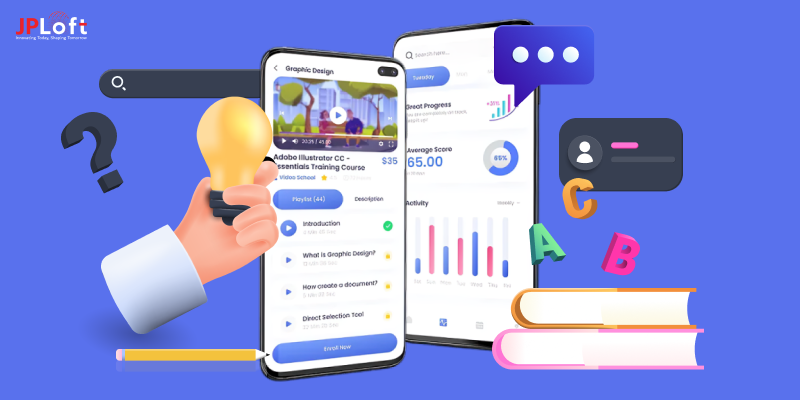The whole trend of Javascript has changed since Node.js development entered the tech industry. Both developers and business owners have found Node.js web development tools to be helpful. Node.js is growing steadily to become the most popular cross-platform runtime environment worldwide. It is highly effective and persistently growing every day with more reliable and finer tools.
There are various tools in the Node.js ecosystem that are intended to make the web development process easier for developers. These Node.js web development frameworks also enhance efficiency by helping with debugging. Currently, there are different Node.js web development tools in the marketplace, but choosing one of them is not a big task as it all depends on the task you have. In this blog post, we’ll help you find the most reliable and effective Node.js web development tools for your next project. Let us get a quick overview of Node.js under our belts before we move on to the tools.
 Selecting the most appropriate framework and Node.js web development company for your web development project is an uphill battle, as there are many on the market. But Node.js's software architecture possesses some incredible features that, to a greater extent, attract developers.
Selecting the most appropriate framework and Node.js web development company for your web development project is an uphill battle, as there are many on the market. But Node.js's software architecture possesses some incredible features that, to a greater extent, attract developers.
What is Node.js?
Ryan Dahl used the Google Chrome V8 JavaScript runtime environment to create Node.js, a cross-platform framework, in 2009. Node.js was developed to handle multiple connections concurrently and swiftly, which directly increases scalability. It comes with non-blocking I/O and an event-driven model, which assures that the hundreds of thousands of requests and connections work instantly without any delays. Streaming and chat applications are the most important aspects of utilising Node.js in the web development process. Many reputable companies use it all over the world because of its cost-effectiveness, versatility, reliability, and quick response time. One of the most important benefits of using Node.js in the web development process is that the developers can create an application on both the server and client at the same time.Why should you use Node.js for web development projects?
 Selecting the most appropriate framework and Node.js web development company for your web development project is an uphill battle, as there are many on the market. But Node.js's software architecture possesses some incredible features that, to a greater extent, attract developers.
Selecting the most appropriate framework and Node.js web development company for your web development project is an uphill battle, as there are many on the market. But Node.js's software architecture possesses some incredible features that, to a greater extent, attract developers.
Scalability
There are many factors to consider while choosing a platform for a Node.js web development process, and the most important of these is the scope of scaling the website or software. Before choosing a platform, you must consider this factor. Node.js offers developers the flexibility to readily expand the software in the future.Superior performance
Low performance website are not preferred by users, as they produce a lower outcome for businesses. Node.js, with non-blocking I/O and an event-driven model, works with very high efficiency and gives seamless performance to the users.Quick response time
Website and software that provide a prompt response give users a high level of satisfaction. These Node.js web development tools have a lightweight structure, which gives users a quick and better response than other competitors in the market. This platform is significantly more lean than other platforms, which allows for more time for review. Read More: Why Choose Node.js for Web Development Needs?What are the popular Node.js Web Development tools?
Creating useful software is not a simple task; however, if you have access to the appropriate tools, the development process will be simplified, and you will be able to produce high-quality products effectively. We have compiled a list of the top ten tools for the web development process with Node.js.1. Express.js
Express.js is the most popular Node.js web development frameworks, as it contains the most robust features to develop mobile/web applications with ease. By integrating Express.js with Node.js, dedicated Node.js developers can develop a vigorous website programming interface far more quickly and easily. There are numerous features, like integrating and simplifying multiple routings and template engines, that help build powerful website with greater performance. Both express.js and Node.js have their own features, and combining both gives exceptional outcomes. Node.js manages the server part, and express.js helps publish applications on websites. Express.js gives its users the flexibility to add plugins and extensions, which makes it the ideal choice for creating and managing APIs and single page web applications.2. Socket.io
Socket.io allows its users to have real-time two-way communications between two devices through applications. It is one of the essential features you can have on a web application regarding messaging and online live streaming applications. Socket.io is the most well-known real-time engine that provides real time analytics data like charts, counters, and logos. Socket.io runs incredibly fast in real time activities and provides its users with a seamless experience in audio and video streaming. Most reputable chat and streaming applications, like Trello and Microsoft, have implemented this development tool with Node.js. Socket.io has very helpful features, such as as binary support, debugging, versatility, and integration that support beginners as well as experts.3. Meteor
Meteor is another Node.js-based, prevalent, and helpful JavaScript prototyping framework for cross-platform coding that can run on multiple platforms such as Android, Web, and iOS. It is built on Node.js and will assist you in creating applications in JavaScript in a seamless manner. One of the most remarkable features of Meteor is its high efficiency, lightweight structure, reduced footprint, and cross-functional applications. These features of Node.js web development tools help make the framework process quicker and more active than other frameworks in Node.js. There are many more features of this framework, including the ability to compress 100 lines of code into 10. These prominent features help the developers develop the application quickly and easily while outperforming competing platforms. Accessing the database, processing on the server, and displaying the results to the client are all done seamlessly without any interruption with the help of this Node.js tool.4. Keystone
Keystone is the most preferred tool for both newbies and experts in web app development, as it simplifies the process of learning and developing web apps with Node.js. Keystone is an open-source full-stack framework that uses Express and MongoDB as databases. Keystone has a unique feature that allows developers to automatically generate user interfaces, making it much easier to create and maintain web applications. Routes, templates, and views are easy to take care of with Keystone. It also has a powerful interface for managing the Content Management System (CMS) and makes it easier to process forms. Keystone is a useful framework and development tool for making APIs that connect to a database and Node.js web apps. However, because of its ability to manage websites and its toolkit-like design, it is also classified as a CMS.5. Koa.js
The Express team created Koa.js, a cutting-edge Node.js web development tool to use with Node.js development. Creating web or mobile applications with room for customization is now accessible with Koa.js. Koa.js is instantaneously responsive and has established itself as powerful, compact, and demonstrative, particularly when it comes to developing APIs and online applications. Koa.js has become a top choice for developers because of its incredible performance, which has been greatly improved by the lack of middleware. Koa is the next-generation web framework for Node.js; despite having the same creators as Express.js, it is significantly more advanced and does not need any middleware to function properly. For some actions like routing, compression, and caching, Koa has built-in plugin support. Koa also has the ability to reduce errors and can remove callbacks. Also Read: Angular JS Vs Node JS Vs React JS: Which One To Choose?6. PM2
PM2 is the most popular Node.js web development tool that springs to mind due to its features and built-in load balancer, which make it the ideal choice for the production environment. PM2 is one of the most straightforward tools for Node.js development, as it functions as a production process manager. PM2 has the ability to check and reload web applications without downtime, which relaxes the developers and DevOps team. With this tool, restarting applications after a crash has become incredibly simple. PM2 helps reduce most of the difficulties and challenges related to running Node.js apps in Docker containers. The PM2 developer community is extremely helpful and available at all hours. Let’s take a look at some of the features of this tool:- Handling Logs
- Support for source maps
- Integrating containers
- Reload and watch
- Application Monitoring
7. Electrode.js
WalmartLab has developed and released Electrode.js, a Node.js web development tool. This tool gives you a standard structure and a list of best practices. You can use Electrode.io to get fast access to all the documents, components, and module trees. It is a very popular and ideal tool that works perfectly with React.js and Node.js. There are some other elements that make this Node.js web development tool reusable with high efficiency and cloud hosting. Electrode Explorer and Electrify are some examples of those elements. If you want to learn or practise coding, then Electrode.js can be your ideal choice, whether you are experienced or a beginner.8. Babel
Babel is an excellent JavaScript compiler that is mostly used for front-end development and provides support for JavaScript's most recent versions. This tool can convert the ECMAScript 2015+ code to JavaScript that is backwards compatible. Babel’s excellent feature of compiling all your modern code into an alternative version of the code that previously browsers could understand made this tool a prominent choice of developers. Programmers can quickly and easily debug the codes with the help of the support map that Babel provides. Some of these features have made this tool widespread. Let’s take a look at some of the other features of this tool:- Babel has syntax transformation abilities, and it can use the code as little as possible.
- It provides a support map to ease debugging.
- It supports polyfills and source code transformations.
- Babel itself does not contain any built-in plugins but allows its users to create their own and use them.













Share this blog